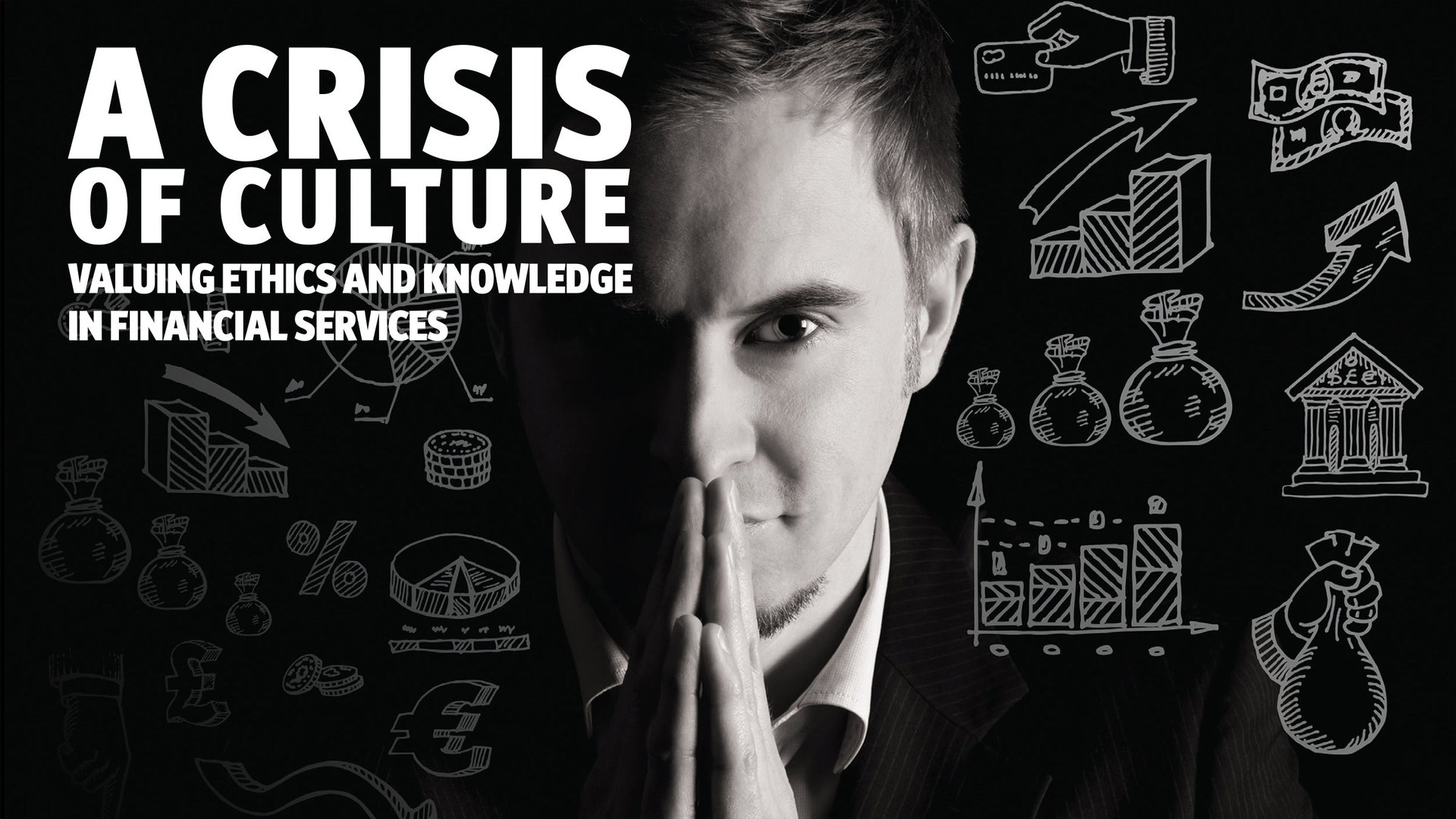Studies find that a shift in culture is critical to restoring trust in the finance industry
The financial services industry has the potential to foster growth, stability, and prosperity around the world. But first, the industry must rebuild trust and create a culture of integrity. For investors, in fact, trusting investment professionals to act in their best interests is more important than achieving high returns. Three recent studies sponsored by CFA Institute examine the industry’s progress, and the challenges that remain, from a variety of angles.


The financial services industry has the potential to foster growth, stability, and prosperity around the world. But first, the industry must rebuild trust and create a culture of integrity. For investors, in fact, trusting investment professionals to act in their best interests is more important than achieving high returns. Three recent studies sponsored by CFA Institute examine the industry’s progress, and the challenges that remain, from a variety of angles.
The CFA Institute & Edelman Investor Trust Study polled retail and institutional investors to examine trust in investment managers, and to explore what dimensions influence that level of trust. The Economist Intelligence Unit report, entitled, “A Crisis of Culture: Valuing Ethics and Knowledge in Financial Services” surveyed financial services executives and industry leaders to examine the role of integrity and knowledge in restoring culture in the financial services industry and in building a more resilient industry. And the 2014 Global Market Sentiment Survey (GMSS) focused on the views and expectations of CFA Institute members on financial markets and integrity around the world.
Some key themes emerged in the following areas:
The role of investment managers
Participants in the Investor Trust Study point to their investment managers as the most important agents for building trust. However, industry executives in the EIU survey indicated there is no financial or career incentive for adhering to a code of ethical conduct. Those polled in the GMSS study pinpointed the misrepresentation of products by financial advisors as the most serious ethical issue facing the industry.
Trust in the industry at large
All three studies point to the fact that although ethical standards are critical to restoring trust, the industry still has a long way to go. Only half of investors trust investment management firms to do the right thing. Among financial executives, 53 percent indicated there is no financial or career incentive for adhering to a code of ethical conduct. Finally, 54 percent of GMSS respondents highlighted a lack of ethical culture in financial firms as the source of mistrust.
Improving integrity and trust
Respondents in the Investor Trust Study rank ethical business practices as one of the most important factors in building trust, and 67 percent of executives in the EIU survey believe their firms have raised awareness of the importance of ethical conduct. Nonetheless, 68 percent of CFA Institute members in the GMSS survey do not expect integrity to improve this year even though the majority were optimistic about a strengthening global economy.
Find out more about how the world of finance can restore trust, here.
This article was produced by CFA Institute and was not written by the Quartz editorial staff.